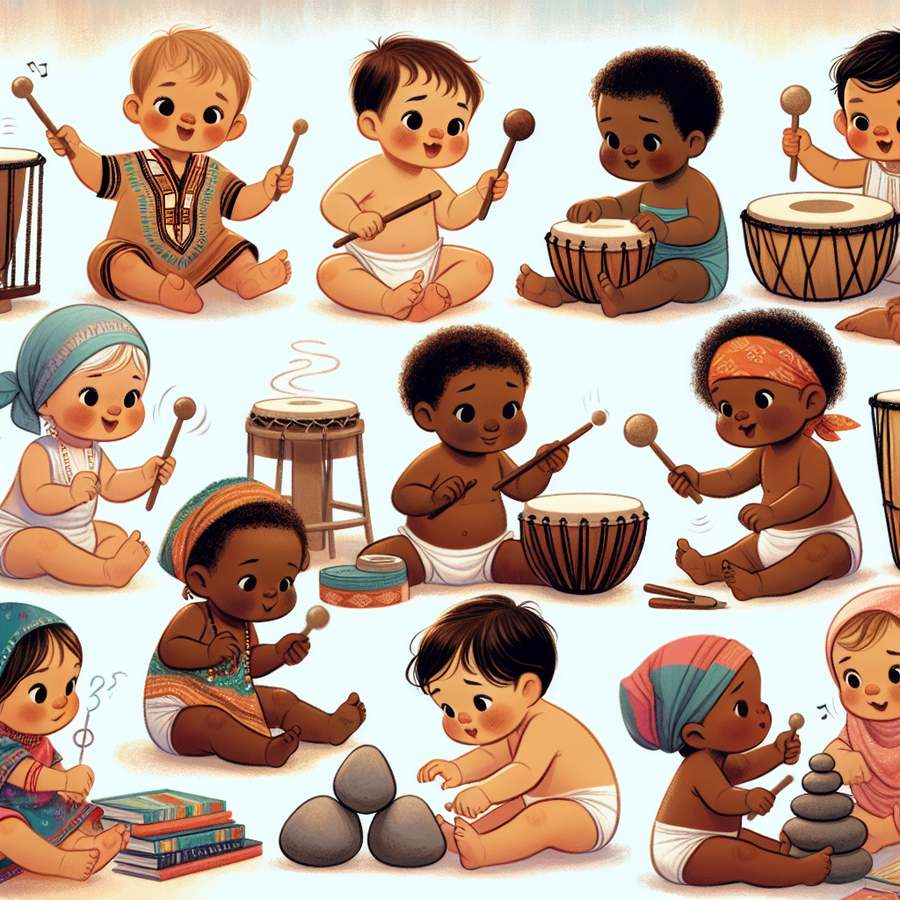The journey of a baby’s first steps, grasps, and rolls is a beautifully complex process influenced by an array of factors, with cultural influences on motor skill development in infants standing out as a significant yet often overlooked component. This deep dive explores how diverse cultural environments shape the foundational milestones in a baby’s life, offering insights for parents, caregivers, and educators alike.
The Role of Culture in Shaping Motor Skill Milestones
It’s fascinating to observe how infants across different cultures achieve motor skill milestones at varying paces and through different practices. Cultural influences on motor skill development in infants are evident in how communities perceive and prioritize these milestones. For instance, in some cultures, babies are encouraged to walk at an earlier age through specific exercises and support mechanisms, while in others, the emphasis might be on fine motor skills such as grasping or hand-eye coordination activities.
The surrounding environment and societal expectations play a pivotal role in how infants are nurtured to develop their motor skills. From the traditional swaddling practices that limit movement in some cultures to the encouragement of free movement and exploration in others, these practices directly impact an infant’s physical development timeline. Understanding these cultural nuances provides a broader perspective on child development and underscores the importance of embracing diverse child-rearing practices.
Cultural Influences on Motor Skill Development in Infants
Cultural influences on motor skill development in infants are not just about the physical activities or practices. They also include the attitudes and beliefs of the caregivers towards child-rearing. For example, in cultures that value independence, infants might be encouraged to feed themselves or play independently at an earlier age, which can enhance fine motor skills and hand-eye coordination. Conversely, in cultures that emphasize community and family bonding, infants might spend more time being held or carried, which can influence their gross motor development differently.
This multifaceted influence extends to the toys and learning materials that are available to infants. Cultural preferences can dictate the types of objects that babies are encouraged to interact with, thus shaping their motor skill acquisition. The design and functionality of these objects can vary significantly from one culture to another, affecting how infants learn to grasp, push, pull, or manipulate objects.
Integrating Cultural Practices into Motor Skill Development Strategies
Embracing a culturally aware approach to motor skill development in infants can enrich the learning and growth process. By integrating diverse practices and materials from various cultures, caregivers can create a more stimulating environment for infants. This not only aids in motor skill development but also fosters a deeper understanding and appreciation of global cultures from an early age.
For those looking to incorporate cultural diversity into their approach, it’s beneficial to research and understand the child-rearing practices of different cultures. Engaging with community members from various backgrounds or consulting with child development professionals who have a global perspective can offer valuable insights. Additionally, incorporating toys and materials that reflect different cultural heritages can provide infants with a range of experiences that support their motor skill development in unique ways.
For further reading on the significance of motor skill milestones and strategies to support them, consider exploring resources such as the Guide to Baby’s First Steps: Encouraging Walking Milestones or the Activities to Boost Fine Motor Skills in a 9-Month-Old. These resources offer practical advice and activities to support motor skill development, taking into account the crucial role of cultural influences.
In conclusion, cultural influences on motor skill development in infants are an intricate part of the early growth journey. By acknowledging and integrating these cultural nuances, caregivers can provide a more enriching and supportive environment for infants to explore, learn, and develop their motor skills. Embracing cultural diversity in child-rearing practices not only benefits motor skill development but also contributes to a more inclusive and understanding world.
- For additional insights on supporting your baby’s development, visit The Role of Sensory Play in Early Childhood Development.
- Learn more about Tracking and Supporting Newborn Visual Development to complement motor skill growth.
- Explore strategies for Encouraging Self-Feeding Skills in Infants: What Parents Can Do to promote independence and fine motor skills.













